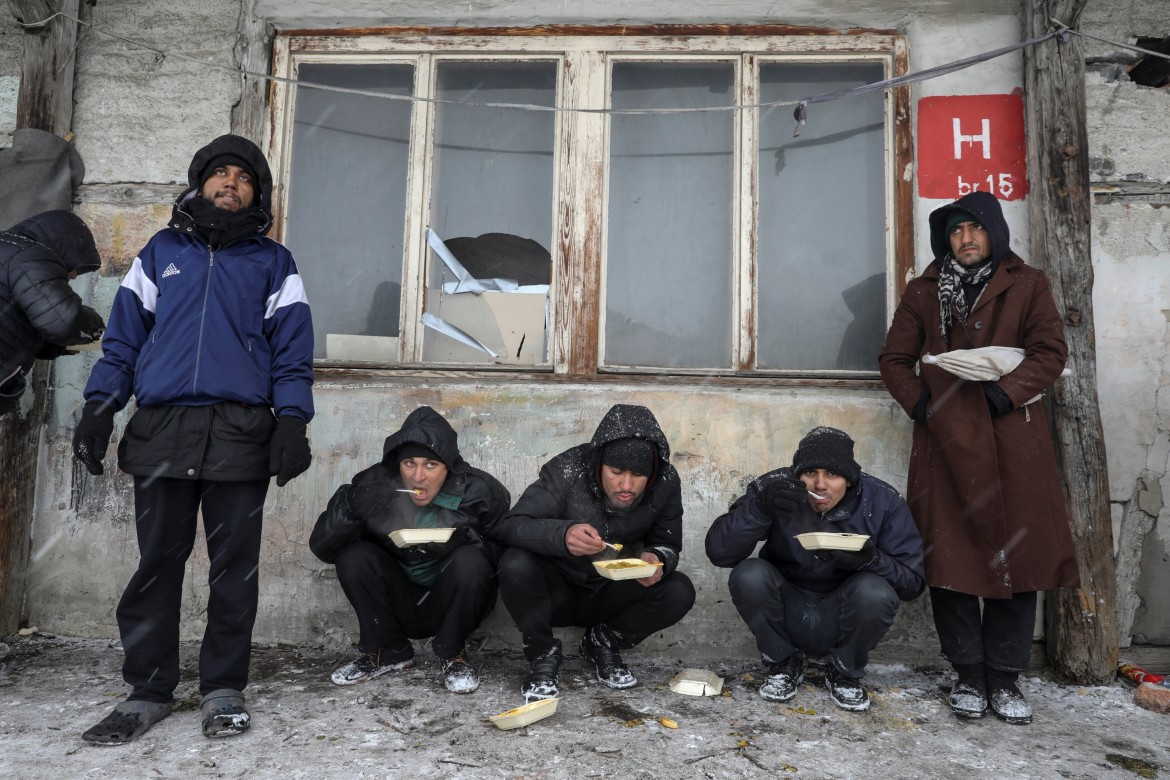Commentary
We are all Orpheus, casting refugees back into hell
But remember that this myth doesn’t end well for Orpheus.

The Greek myth of Orpheus and Eurydice returns with dramatic relevance in the lives of refugees gripped in the bitter cold of a Serbian winter.
In the story, Orpheus of Thrace plays his lyre so beautifully that his music not only enchants humans but also plants and animals. When his wife Eurydice dies, he asks Hades, the lord of the underworld, to grant him the grace to bring her out of the eternal night. The sound of his music, which overwhelmed even the singing of the Sirens during the adventure of the Argonauts, persuaded the dark prince to grant his request, with one simple condition: Orpheus was not to look upon Eurydice before his ascent from the underworld was complete.
We know how it ends: Orpheus turned around, and his sweetheart was cast forever back into Erebus. Why did Orpheus turn, condemning Eurydice? Perhaps because, the ancients tell us, he at some point acquired the dramatic knowledge that he was resurrecting a dead woman, who would also remember the eternal darkness and that this, to Orpheus, singer of life, was unbearable. Or — and this doesn’t change the meaning — this was just another challenge to see if even death could be bent to his will. The salvation of Eurydice didn’t matter.
Right now, for the next few weeks, we are Orpheus repeating his gesture to Eurydice. But we’re not just pushing one person back into hell. We’re repeating the gesture hundreds of times with thousands of men, women, children and old people.
Why are we letting refugees die in the cold, or repelling them into no man’s land between Serbia and Bulgaria, or all the way back to the hell from which they fled? Among other reasons, because this emergency has reopened the unresolved issues of the Balkans, which are suspended in so-called peace agreements. It suffices to think of the Serbian refugees of Kosovan origin, refugees whose fate is equal in cruelty to that of the Syrians.
The shameful instrumentalization, by all parties, of these people whose bodies are as ghostly as the towns they come from is almost the exact replica of the hypocrisy on which we built our policies of African enslavement.
And so, back to the myth, which like all myths teaches what never was but will always be. Orpheus is killed by the Maenads, perhaps because he offends Dionysus — that is, he refused to celebrate the inevitable cycle of life and death, wanting to remain forever young.
And isn’t that exactly what we want? Isn’t it immortality the West seeks? And isn’t it consumerism that drives us to pursue this inhuman purpose? So it’s no wonder that our physical death, like that of Orpheus who refuses to sing of life in his eternal becoming, every day risks being roughly the same as the Thracian singer: blown to bits by a truck on the way to consume something.
Everything comes back, like Euridice, to remind us of the debt we owe to those we’d rather cast into hell because we don’t remember that it was us who put them there. Let’s be reasonable and act without hypocrisy to save not only those distant from us, but ourselves.
Originally published at http://ilmanifesto.info/orfeo-che-ricaccia-i-profughi-allinferno-e-poi-muore/ on 2015-10-08
